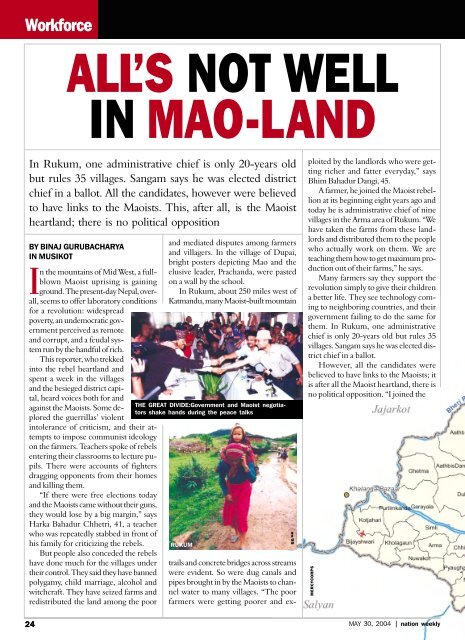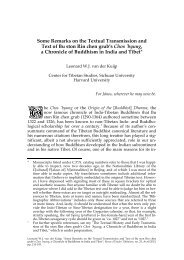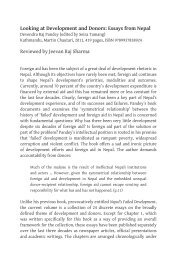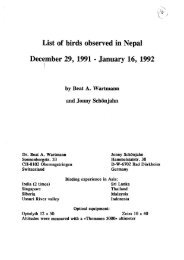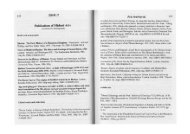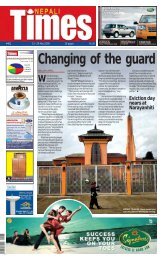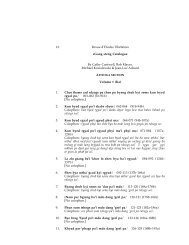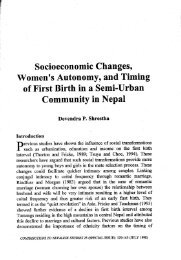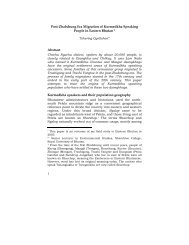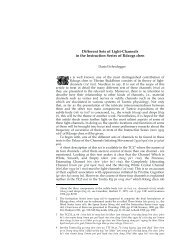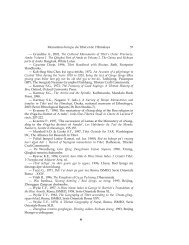Create successful ePaper yourself
Turn your PDF publications into a flip-book with our unique Google optimized e-Paper software.
Workforce<br />
24<br />
ALL’S NOT WELL<br />
IN MAO-LAND<br />
In Rukum, one administrative chief is only 20-years old<br />
but rules 35 villages. Sangam says he was elected district<br />
chief in a ballot. All the candidates, however were believed<br />
to have links to the Maoists. This, after all, is the Maoist<br />
heartland; there is no political opposition<br />
BY BINAJ GURUBACHARYA<br />
IN MUSIKOT<br />
In the mountains of Mid West, a fullblown<br />
Maoist uprising is gaining<br />
ground. The present-day Nepal, overall,<br />
seems to offer laboratory conditions<br />
for a revolution: widespread<br />
poverty, an undemocratic government<br />
perceived as remote<br />
and corrupt, and a feudal system<br />
run by the handful of rich.<br />
This reporter, who trekked<br />
into the rebel heartland and<br />
spent a week in the villages<br />
and the besieged district capi-<br />
tal, heard voices both for and<br />
against the Maoists. Some deplored<br />
the guerrillas’ violent<br />
intolerance of criticism, and their attempts<br />
to impose communist ideology<br />
on the farmers. Teachers spoke of rebels<br />
entering their classrooms to lecture pupils.<br />
There were accounts of fighters<br />
dragging opponents from their homes<br />
and killing them.<br />
“If there were free elections today<br />
and the Maoists came without their guns,<br />
they would lose by a big margin,” says<br />
Harka Bahadur Chhetri, 41, a teacher<br />
who was repeatedly stabbed in front of<br />
his family for criticizing the rebels.<br />
But people also conceded the rebels<br />
have done much for the villages under<br />
their control. They said they have banned<br />
polygamy, child marriage, alcohol and<br />
witchcraft. They have seized farms and<br />
redistributed the land among the poor<br />
and mediated disputes among farmers<br />
and villagers. In the village of Dupai,<br />
bright posters depicting Mao and the<br />
elusive leader, Prachanda, were pasted<br />
on a wall by the school.<br />
In Rukum, about 250 miles west of<br />
Katmandu, many Maoist-built mountain<br />
THE GREAT DIVIDE:Government and Maoist negotiators<br />
shake hands during the peace talks<br />
RUKUM<br />
trails and concrete bridges across streams<br />
were evident. So were dug canals and<br />
pipes brought in by the Maoists to channel<br />
water to many villages. “The poor<br />
farmers were getting poorer and ex-<br />
nw/SS<br />
nw/SS<br />
ploited by the landlords who were getting<br />
richer and fatter everyday,” says<br />
Bhim Bahadur Dangi, 45.<br />
A farmer, he joined the Maoist rebellion<br />
at its beginning eight years ago and<br />
today he is administrative chief of nine<br />
villages in the Arma area of Rukum. “We<br />
have taken the farms from these landlords<br />
and distributed them to the people<br />
who actually work on them. We are<br />
teaching them how to get maximum production<br />
out of their farms,” he says.<br />
Many farmers say they support the<br />
revolution simply to give their children<br />
a better life. They see technology coming<br />
to neighboring countries, and their<br />
government failing to do the same for<br />
them. In Rukum, one administrative<br />
chief is only 20-years old but rules 35<br />
villages. Sangam says he was elected district<br />
chief in a ballot.<br />
However, all the candidates were<br />
believed to have links to the Maoists; it<br />
is after all the Maoist heartland, there is<br />
no political opposition. “I joined the<br />
MERCYCORPS<br />
MAY 30, 2004 | nation weekly


